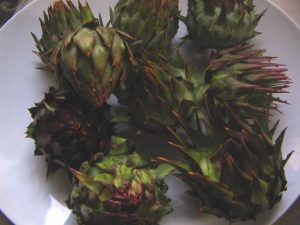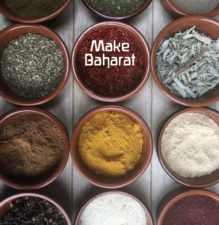Are you sure you want to cook etrog jam this year? Make sure it’s organic, first.
In my parent’s old-fashioned cookbooks are recipes based on the beautiful, fragrant etrog (citron): etrog jam, etrog cake and cookies, even an etrog souffle. As tempting as it is to make jam out of the attractive yellow fruit after Sukkot, refrain. Non-organic etrogim are so full of pesticides that they are a danger to human health. (If you are sure your etrog is safe, here is our etrog jam recipe.)
Citron is a fragile crop. Farmers we spoke to said that the fruit will spoil even if one rubs against another on the branch, so the very best are chosen and the rest are culled. And they’re particularly vulnerable to insect infestation. In order for an etrog to be kosher for the Sukkot holiday, it must be blemish-free, so farmers are obliged to protect their scanty crop with lots and lots of pesticide. This is legal because the etrog isn’t considered a food crop.
So what can we do with our etrog after the holiday? We love etrogim, and always run out to buy a sackful of unsold extras right after the holiday. We arrange them in a basket and keep them on the coffee table: see photo above. Their exquisite perfume drifts through the room and lasts for many days.
Make an old-fashioned pomander out of your etrog. The best-known way to preserve an etrog is to stud it with whole cloves. You must poke small holes all over the etrog with a sharp, pointed object like a thick, heavy needle, then push the cloves into the holes. The etrog will shrink in and dry out. It will lose its characteristic fragrance and smell of the cloves. Many people like to use a clove-etrog for the Havdalah ceremony after Shabbat.
Chag Sukkot Sameach!
More on Sukkot from Green Prophet:
Make Your Own Ricotta on Sukkot“Ye Shall Live in Booths” and Be With Nature on Sukkot




Jonathan, I spoke to an etrog farmer here in Israel. He would rather not be identified. He told me that etrogrim are not a particularly profitable crop, being delicate and low-yield. “You have to do it for love,” he said. When I brought up the pesticide question, he told me openly that as etrogim are not sold as a food crop, they are very heavily sprayed indeed, in order to have a decent harvest at Sukkot time.
can you please provide a source for your comment “Non-organic etrogim are so full of pesticides that they are a danger to human health.”
Where can you find an organic etrog? Trying to make a note for next year.